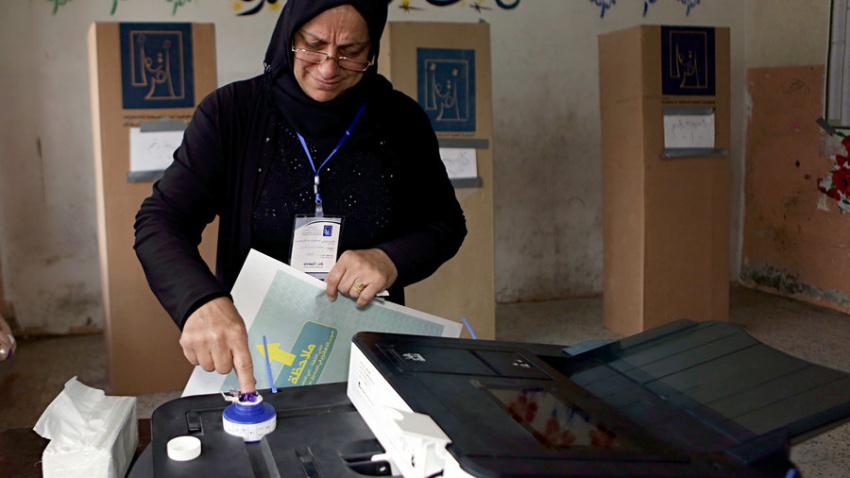Iraq Elections and Saudi Arabia’s Failure

Iraq’s electoral commission ultimately announced the final results of the country’s parliamentary elections. The results suggested that a political coalition led by influential Shia cleric Muqtada al-Sadr won 54 seats — the most seats.
The Fatah bloc led by Hadi al-Amiri, which has close ties with the Popular Mobilization Units, came in second with 47 seats. The Nasr Coalition, headed by incumbent Prime Minister Haider al-Abadi’s bloc took third place with 42 seats.
The State of Law coalition led by former Prime Minister Nouri al-Maliki won 25 seats. Although under 45 percent of the country’s 24 million eligible voters took part in the elections, the victory of Sadr’s bloc could lead to a shift in Iraq’s political system.
The Iraqi elites are pessimistic towards the formation of a coherent government because approaches adopted by Sadr’s bloc have been paradoxical.
Sadr’s trip to Saudi Arabia and his meeting with Crown Prince Mohammed bin Salman has raised concerns among the Iraqi elites. This is because the visit took place despite Saudi Arabia’s destructive policies in the region which have adversely affected Iraq. The Iraqi elites believe the meeting could pave the ground for polarizing the society and creating divisions among Shia Muslims.
It is believed that Sadr’s bloc, which won the most parliamentary seats, will increase its demands and will call for holding key ministries such as foreign, defense, oil, security and economy ministries. However, there are hopes that other Shia groups will be able to stand up to the excessive demands of Sadr’s movement.
A glance at Iraq’s parliamentary elections shows that the Iraqi people are the real winners and Saudis are the losers. The election of Fatah bloc led by Hadi al-Amiri as the second biggest bloc in the Iraqi parliament showed that the Iraqi people are aware of regional plots which are aimed at undermining the country’s unity. Hence, Saudis will fail to carry out their conspiracies to return Iraq to the pre-2003 era and polarize the society.
The influential presence of several parties in parliament will thwart plans by pro-Saudi blocs to change the country’s policies in favor of Riyadh. In fact, Iraq’s parliamentary vote is the second setback for Saudis following Lebanon’s parliamentary polls. The kingdom attempted to interfere in Lebanon’s parliamentary elections, but Hezbollah and its political allies emerged as the biggest winners which foiled Saudi Arabia’s plots.
*Hassan Hanizadeh is an expert on Iraq issues.
Source: IRNA

